Last Updated on November 11, 2024
Listening is key to all effective communication. To improve students’ listening comprehension skills, we need to be able to gather data on their performance, target specific areas of need, and then provide personalized instruction and targeted practice.
At Listenwise, we support teachers by providing instructional support in literacy and other 21st century skills – particularly listening. In order to promote student proficiency in listening comprehension, we have identified 8 key skills, which align to Common Core State Standards and Smarter Balanced Assessment evidence statements. Listenwise quizzes address the CCSS standards associated with SBAC ELA/Literacy Claim #3: Students can employ effective speaking and listening skills for a range of purposes and audiences.
Using Listenwise Quizzes to Assess Key Listening Comprehension Skills
We have developed multiple choice formative listening comprehension assessments that accompany Listenwise lessons. These assessments include questions related to these 8 key listening comprehension skills, so teachers can analyze student performance data to get a more nuanced picture of listening comprehension strengths and needs.
By looking at the quiz data dashboard and analyzing performance by skills, teachers and students can see patterns and identify learning needs, for classes, groups, and individual students, and then design instruction to meet those needs. Teachers who have been using Listenwise report that they are seeing growth in their students’ listening performance on standardized tests.
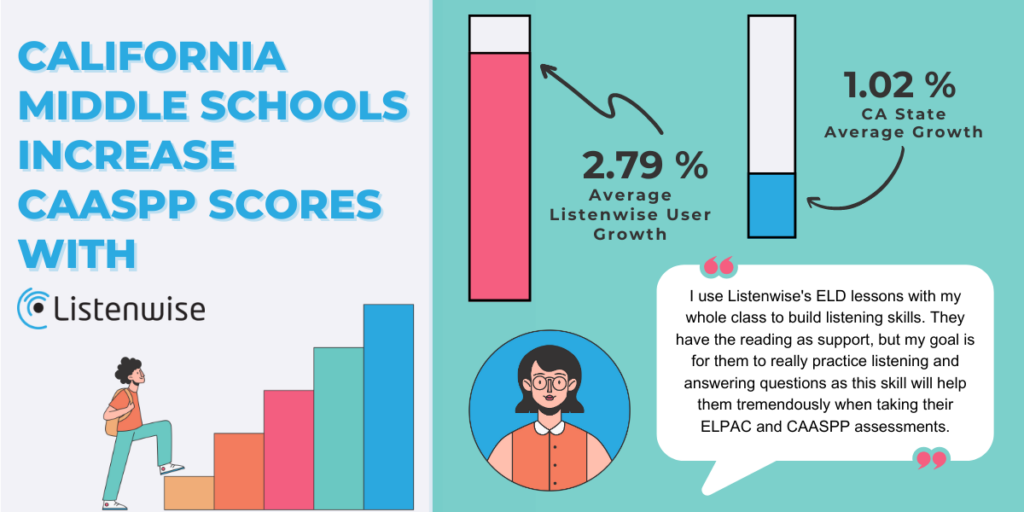
How did we decide which 8 key listening skills we wanted to assess and track? We identified comprehension skills that are included in reading assessments because we know the important connection between reading and listening. While listening and reading both require comprehension skills, many of which overlap, the application of those skills can vary somewhat across contexts.
For example, students need to practice identifying the most important ideas in audio stories, which can be organized differently than print stories. The natural speech found in these audio stories typically does not follow the structure of a written article with a clearly articulated lead and a linear progression of ideas. When students are listening to a speaker’s voice, they can also pay attention to the tone, emphasis, and pacing of the speech to help them make inferences or analyze the speaker’s argument. Thus, while building comprehension skills through listening can also boost reading comprehension, there are additional benefits to developing listening comprehension skills directly using audio passages that are designed to be heard.
8 Key Listening Comprehension Skills
- Recognizing Literal Meaning: Questions about facts, details, or information explicitly stated in the audio story
- Understanding Vocabulary: Questions about the meanings of words as they are used in the context of the audio story
- Making Inferences: Questions asking students to make inferences as they listen to audio stories, interpreting what is said by going beyond the literal meaning
- Identifying Main Idea: Questions asking students to identify the central idea or gist of an audio story
- Determining Purpose: Questions asking students to determine the purpose of an audio story
- Drawing Conclusions: Questions asking students to draw conclusions by synthesizing information in an audio story
- Analyzing Reasoning: Questions asking students to analyze reasoning supporting a claim in an audio story
- Finding Evidence: Questions asking students to identify statements or details in an audio story that provide evidence to support claims or conclusions
The first four basic listening comprehension skills are assessed on all Listenwise quizzes. The second set of four higher order skills are assessed on a subset of quizzes (those associated with secondary standards-aligned lessons).
Listenwise Quiz Question Examples
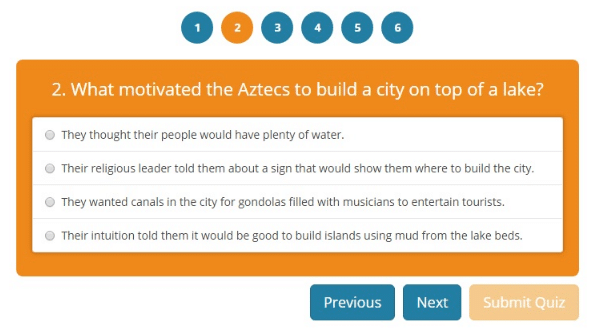
Here is an example of a question that assesses the skill of Recognizing Literal Meaning:
Here is an example of a question that assesses the skill of Determining Purpose:
Here is an example of a question that assesses the skill of Finding Evidence:
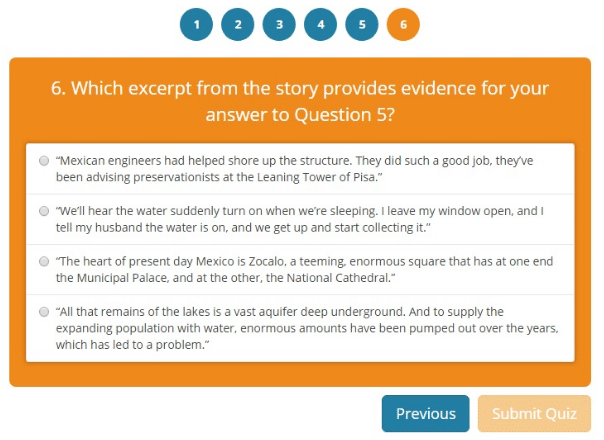
If you have Listenwise access you can access these quizzes right away. Log in and look for the Quiz icon next to lesson titles. You can use the search feature to filter for stories with quizzes. We are adding new quizzes every week.
Learn more about how Listenwise supports building listening skills in our blog post, “7 Guidelines for Teaching Listening.”
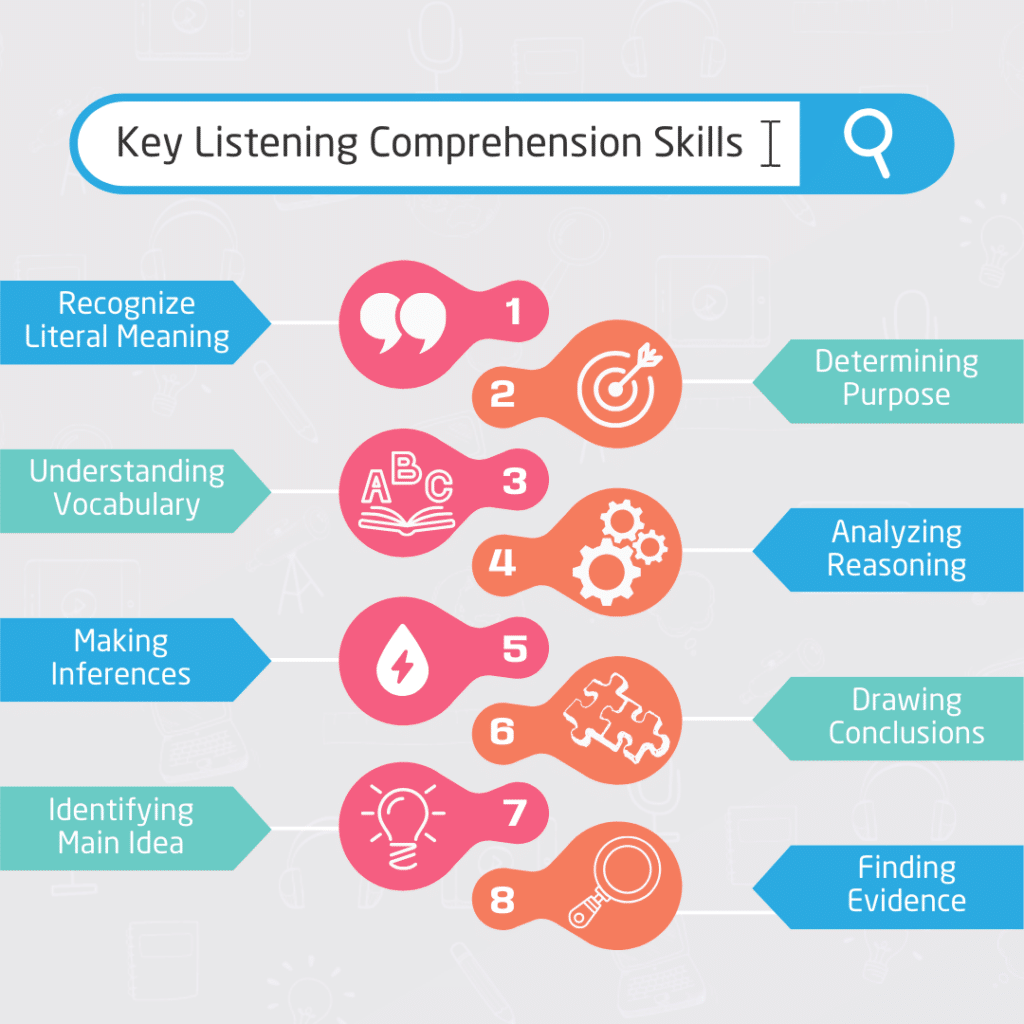
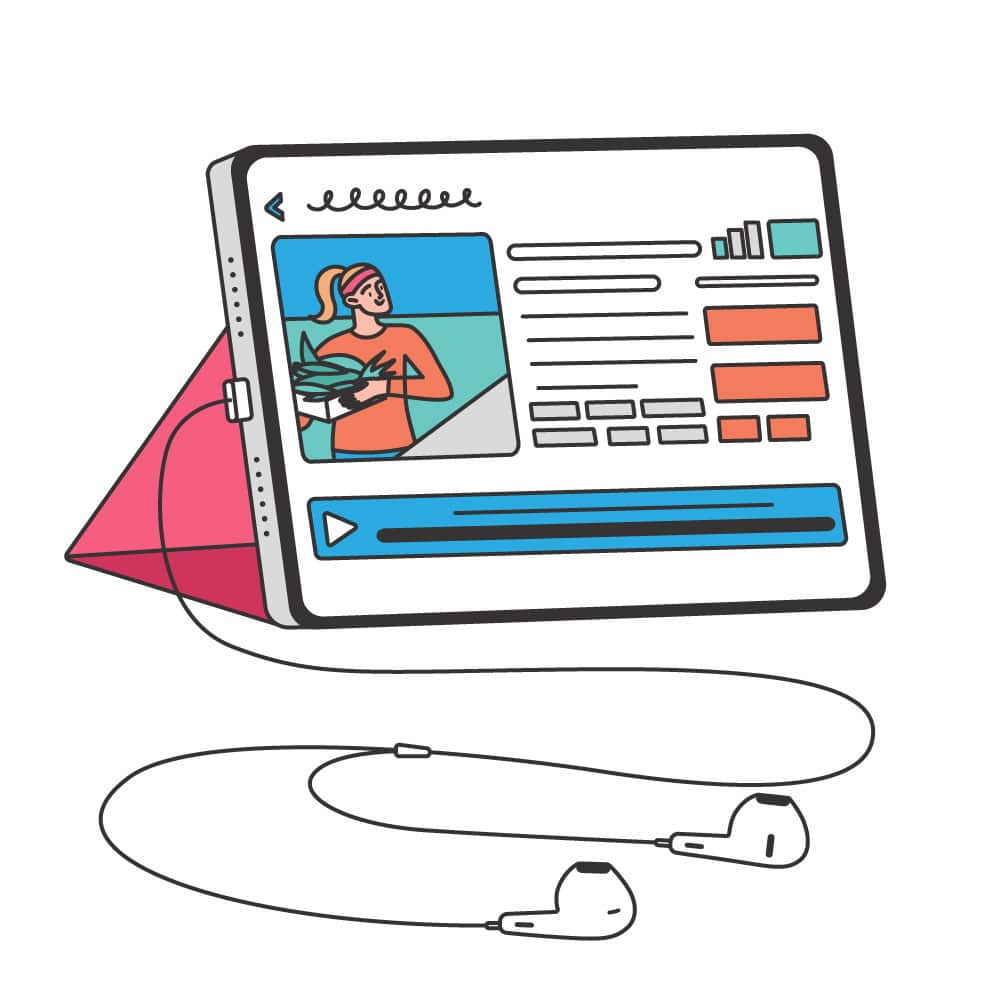


Thanks, great article.